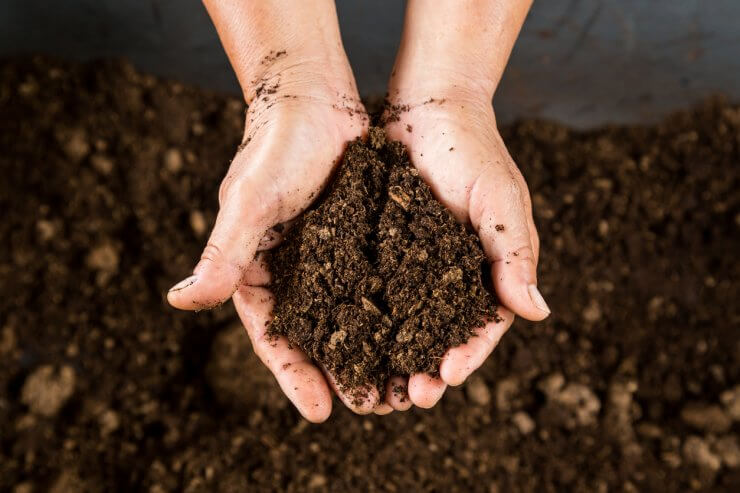
It’s no secret that I love compost. For those just getting into gardening, compost is decomposed organic matter that can be used as a soil amendment in garden beds and container gardens. It helps vegetables and herbs retain moisture and prevent pests and diseases. Compost has helped my vegetable garden thrive over the years and is my number one recommendation when someone asks me what they can do to improve their soil quality. Compost can be made from worm castings, leaves, and even kitchen scraps. For decades, peat-based compost was a top choice among gardeners for its moisture and nutrient retention.
Peat-based compost is made from peat, a product naturally found in the bottom of waterlogged bogs. There are benefits and drawbacks to using peat-based compost based on what it does to enhance your soil as well as the environmental factors of harvesting peat. Here are some pros and cons of using peat-free compost vs. peat-based compost, to help you make your gardening decisions.
Discover 7 top tips for growing, harvesting, and enjoying tomatoes from your home garden—when you access the FREE guide The Best Way to Grow Tomatoes, right now!
Peat-based compost
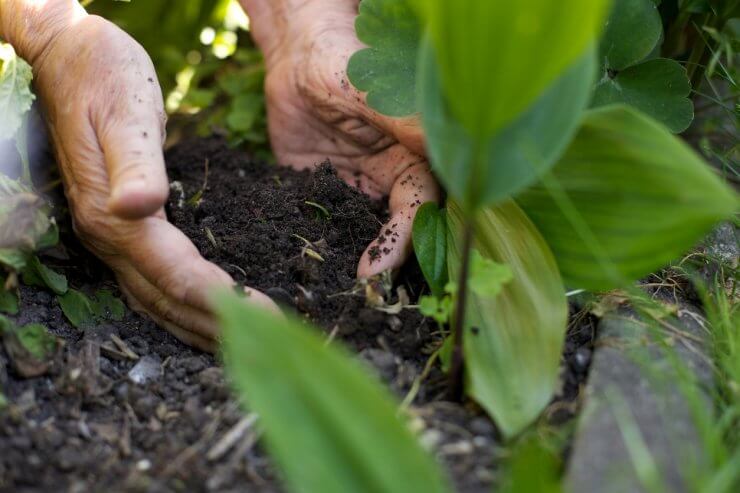
Pros
- Good at holding in nutrients from other sources (fertilizer, other organic matter).
- Has a naturally low pH level which can be helpful for more acid-loving herbs, fruits, and vegetables, like blackberries, parsley, potatoes, and raspberries.
- Holds its shape and doesn’t compact which makes it continue to aerate and drain well for years as compared to other types of compost.
- Really effective at moisture retention.
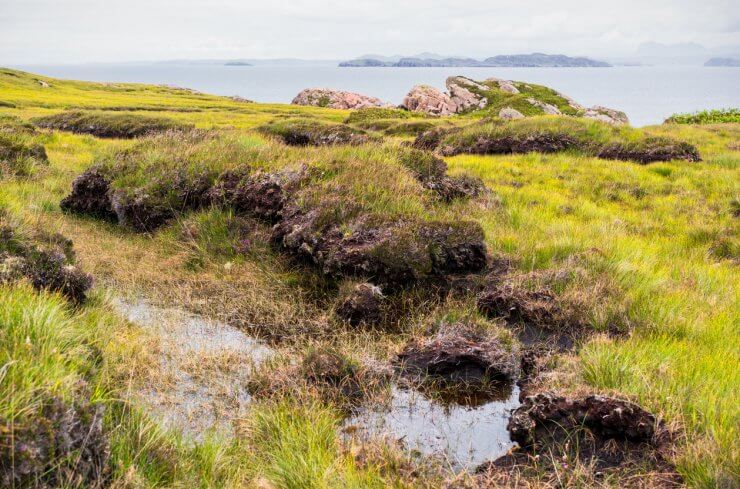
Cons
- Oftentimes more expensive than other locally sourced compost.
- Doesn’t have many nutrients to enhance the growth of herbs and vegetables.
- Susceptible to drying out and hard to re-moisten once dried.
- Harvesting practices release harmful levels of carbon into the atmosphere and leave peat bogs dry and prone to wildfires.
Peat-free compost
Pros
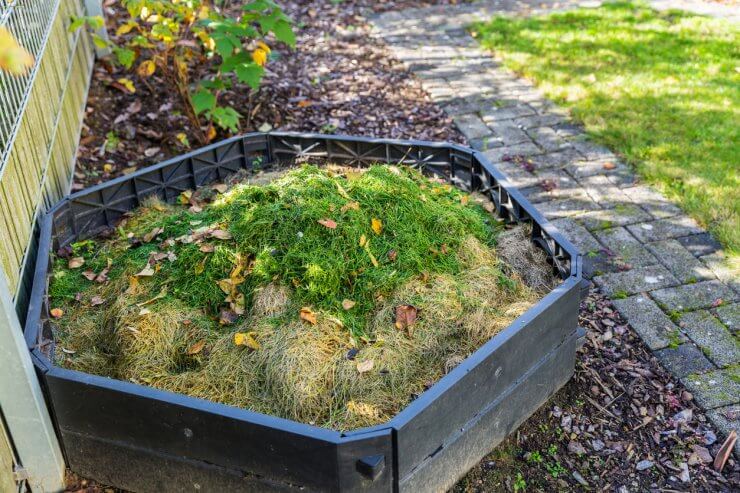
- Many types of peat-free composts are available to choose from at every price point.
- You can make your own compost in your backyard using different methods.
- Peat-free alternatives like coco coir (made from coconut husks) and sheep’s wool waste (pellets made from leftover sheared wool) offer the same moisture retention as peat.
- Many composts can serve double duty as mulch as well.
- Most peat-free composts contain healthy microorganisms that offer nutrition and aeration to vegetables and herbs.
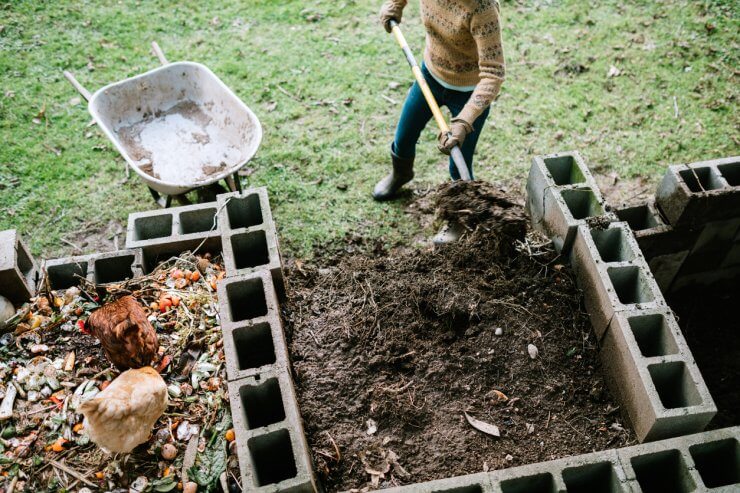
Cons
- The composition of compost can vary in texture and material from one scoop to the next and must be well mixed and incorporated.
- Compost can contain weed seeds that won’t be killed off if compost is does not reach high enough temperatures.
- Some composts can contain contaminants if not made with correct organic materials.
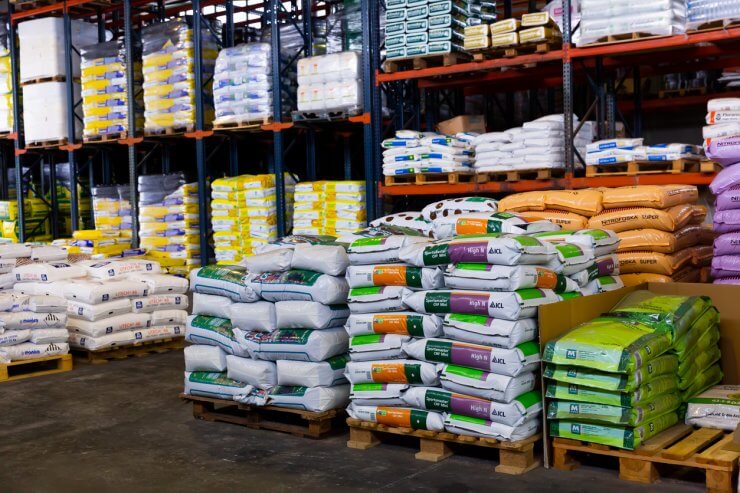
Bottom line: read your labels and choose what is best for your garden
It would be easy for me to say avoid peat-based compost at all costs, due to environmental concerns. But there are groups of peat manufacturers doing some interesting work around peat conservation that involve more ethical harvesting practices. With more peat-free compost options becoming more affordable, like coco coir used in container garden potting mix, you may consider reducing your peat use. Ultimately the choice is yours. I encourage you to read your compost labels and do your own research to find the best products for your garden.
Do you use any peat-based or peat-free compost products in your garden? Which ones do you like the best? Let me know in the comments!
Discover 7 top tips for growing, harvesting, and enjoying tomatoes from your home garden—when you access the FREE guide The Best Way to Grow Tomatoes, right now!




I bought a Lomi based on your recommendation. it’s fantstic! My only complaint is that it is so small. I didn’t like the price being quoted in Canadian dollars. Then I got charged in America dollars!
Thank you for continuing the discussion of “Peat-Free or Peat?”
This is a critical discussion as more destructive weather changes are happening. A Forum recently held in Bonn, Germany, titled the forum, “Peatlands the Forgotten Solution’
Peatlands only cover 3-4% of the earth’s surface. Forests cover 31%. That 3 to 4% of peatlands stores twice as much carbon as the world’s forests. It can take thousands of years to replace a peatland. Forests can recover in about 100 years, depending on the type of trees.
Just to let you know where I’m coming from, I’m the President
/Executive Director of the Peatlands Protection Society.
I started finding out how important peatlands were over 40 years ago when a group of people successfully fought to save a local bog.
Ireland has stopped using peat in several areas of ireland, the UK has ended the use of peat in horticulture. Even Indonesia that has been so criticized for the destruction of its peatlands si working to reduce the use of peat.
Canada and the USA are slow to get on board on banning the destruction of our peatlands. Our Society along with the CFUW University Women’s Club North Delta/Surrey is working to change that.
Change is never easy. Change we must.
I just finished proofing a booklet called the “Gardener’s Guide to Saving the Planet.” Once it is published, I will send a copy to the Food Gardening Network for review. BTW I bought a Lomi based on your recommendation! I can’t believe how little is left of the composted items.
To all readers, gardeners, “For Peat’s Sake. Don’t use Peat.”
Thank you everyone for your comments, I was going to switch to peat free but have decided to stick to my old faithful. I have had bad bags from supermarkets which have been dry and full of lumps. I buy from a local garden centre now and it is really good compost.
Here’s some books you might like to read on the issue of peatlands.
Annie Proulx is a Pulitzer Prize winner.
Fen, Bog & Swamp, A Short History of Peatland Destruction and Its Role in the Climate Crisis. Publisher Scribner, 2022.
Swamplands, Tundra Beavers, Quaking Bogs, and the Improbable world of Peat, by Edward Struzik, Island Press, Washington, 2021 and finally, Ramsar Wetlands, Values, Assessment, Management, publisher Elsevier, Switzerland 2023.
When I started my journey to learn about peatlands, it was almost impossible to find anything about them. I remember getting very excited about receiving a small brown document of about 20 pages from the Irish Peatland Conservation Council. http://www.ipcc.ie
Thanks for the opportunity for letting me share what I have learned. “The cheapest and most efficient way to reduce climate change is to save our peatlands. Source: UN 2005.
It’s cheaper than to reclaim them. There are still lots of problems trying to reclaim peatlands. It takes far more years to get a peatland back to its natural state as they only grow about 2 mm. a year. The other challenge is that it appears that some of the native bog plants don’t return. Kudos to those who try.
I found reading the comments very interesting. The bottom line folks, is that 87% of the peat mined in Canada goes to the USA. This past year, the wildfires in the north were horrendous. One of the reasons is that the trees were on peatlands. When peat starts burning, depending on its depth, it can burn for years. Fires are already flaring up in northern burned areas.
The UK is banning the use of peat in horticulture and gardening by 2025.
Managing a peat bog is questionable. It takes up to 5000 years for a bog/peatland to become a peatland. Some of the reclaimed peatlands do not have some of the rare plants returning.
Kudos to everyone who goes peat free. You are saving the planet. My mother never used peat and she had great gardens.
I suggest that you take some time and check out http://www.ramsar.org and Wetlands International. One of the reasons that Katrina was so destructive was because so much of the area damaged was built on drained wetland. Plus, the destruction of mangroves along the coast. Where the mangroves hadn’t been destroyed, they served as a buffer.
Peatlands store more carbon than all world’s forests. Every time peat is removed from a wetland, carbon is released into the atmosphere. If you don’t like wildfires, floods, and extreme weather, don’t use peat. I urge you to take the time and do some research on the benefits of saving our peatlands.
By the way, King Charles stopped using peat on his farms back in 1988. People used to thing he was a bit batty. Now they see him as being ahead of the times.
Less than 3% of the earth’s surface is covered with peat. That small bit stores twice as much carbon as all the world’s forests. Peatlands are being destroyed at a faster rate than our forests. In 2007, the UNEP declared that the fastest and cheapest way to reduce climate change is to stop destroying our peatlands. The latest COP 28 raised the issue higher than ever before about the need to save our wetlands. This includes peatlands, marshes and other wetlands. Northern British Columbia, Canada suffered some of the worst wildfires ever. The reports don’t mention that those wildfires, for the most part took place on forested peatlands. When a peatland catches fire, it is like burning coal. Fires have been known to go down as far as 12 feet and burn all through a winter.
This past year, CFUW-University Women’s Club, British Columbia, successfully passed a motion calling for the government to stop the sail of peat for horticultural purposes.
My mother never used peat in her gardening. I remember that she used to go out into her garden, get some soil and then bake in it in her woodburning stove oven. She never had a problem with weeds or other baddies.
My mother and I spent a year away from the family farm. To my mother’s horror when she looked out the kitchen window and saw that the pond in the cow pasture had been destroyed, she exclaimed, “where will the mother duck go? If your father were alive, he would never have allowed that to happen!” Perhaps that is why i have spent the last 25 years fighting to save peatlands. First it was Burns Bog in Delta, BC. Now it is with the Peatlands Protection Society fighting to raise awareness about the importance of peatlands for the survival of our planet. Check out: http://www.ramsar.org and the Sierra Club’s fight to stop the destruction of 15,000 acres of peatland in North Carolina. In your spare time, you might find the book, “Girl of the Limberlost” by Gene Stratton-Porter. Dr. David Bellamy, (deceased), UK, credited the book for his life-long work to save peatlands. Eliza Olson, LLD.(h.c.), B.Ed. President, Peatlands Protection Society, Past President, Burns Bog Conservation Society “For peat’s sake, don’t use peat!” or better still, “For Peat’s sake, don’t use peat for our earth’s survival!”
Damping off and fungal infections were a real problem with seedlings especially lettuce ! Also I have never lost so many potted plants, mainly fuchsias, geraniums and begonias as I have since using peat free, many plants were several years old . The pots become waterlogged in periods of rainy weather and the compost looses its nutrients quickly. I always buy new stock and good quality compost .
The only good thing is that vine weevil do not like it as much , their presence is noticeably less.
On the whole very disappointing.
All my tomato seedlings went yellow and died in Dobbie’s peat free “planting on” compost – never happened before and was blamed on the peat free compost – will be buying regular compost in future
I haven’t found a single peat free compost that I like better than peat based compost.I used some ericaceous peat free compost to mulch my well established rhododendrons and three of them died .The peat free stuff dries out too quickly and seems to have no substance.I shan’t be able to buy any more acid loving plants in future.It’s rubbish.
I like Malibu Compost certified organic, non GMO & is biodiverse. They have seed starter that is nice and fluffy. It’s more expensive but a little goes a long way.
I heard about it on iTunes podcast “The Healthy Garden.” I learned so much on there.
I like PittMoss. Environmentally friendly & works great.
I live close to the Somerset levels where a local company has been carefully managing the peat beds for many years. I use their specialist compost composed of peat and loam. I would like to add further comments not directly concerned with the actual compost. I use a locally produced product, I drive no more that 14 miles in a petrol powered vehicle, and always ensure I carry the maximum my vehicle will take. Compare with coir (coconut) based compost which has travelled thousands of miles on diesel powered ships, transported in diesel powered lorries for distribution around the country. In order to be fair I have tried coir based compost and found it to be a nightmare where watering in concerned, initially appearing to be waterlogged, then rapidly draining, leaching out nutrients and leaving plants dehydrated unless carefully watched. Incidentally my watering regime uses rainwater from my large number of water butts, using hosepipes to syphon water to where it is required – frankly I resent being constantly lectured regarding the use of peat, especially as in this area (Somerset) we are keenly aware of protecting our wildlife and the levels are being sympathetically managed to rewild the wetlands.
Prior to sowing seeds, I sieve my compost and I find peat based compost is easier to sieve.
When I’m pricking out seedlings, I use a pest free or home made compost and everything grows really well. ????
I bought organic Miracle Gro potting soil with coir this year for the moisture-retaining property in containers, but some of my plants died with what looks like fungus or mildew on them and I am wondering if it retains too much moisture and makes problematic conditions? These containers all have adequate drainage and I’ve not had this problem before with other potting mixes. I use my own homemade compost in the garden beds for flowers and vegetables.
I am using Miracle Grow Multi Purpose compost and it is awful. It is full of large hard lumps and a large amount of tough straw like fibres and woody pieces. It is almost as though it has not been chopped or shredded properly. It really is only a step away from bark mulch! It is definitely NOT multi purpose as you cannot use it for potting on or seeds or cuttings.